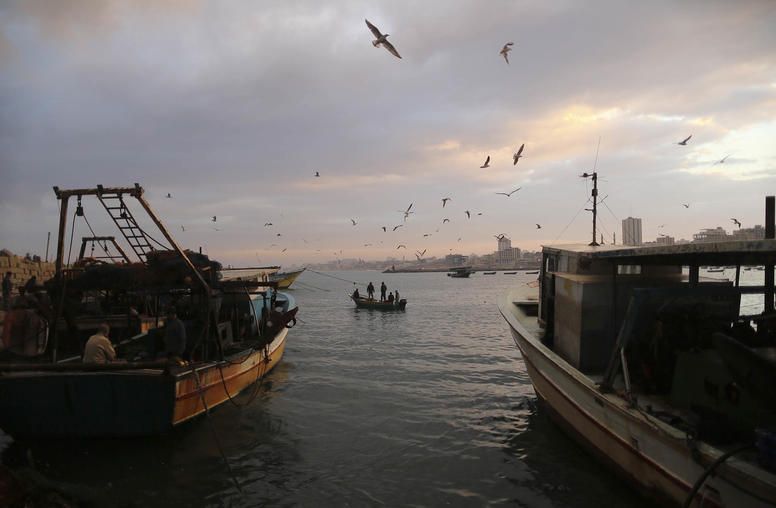Post-Mubarak Egypt
USIP’s Manal Omar discusses the challenges facing post-Mubarak Egypt and how the international community can best assist its transition to democracy.
May 25, 2011
 USIP’s Manal Omar discusses the challenges facing post-Mubarak Egypt and how the international community can best assist its transition to democracy.
USIP’s Manal Omar discusses the challenges facing post-Mubarak Egypt and how the international community can best assist its transition to democracy.
- What kinds of challenges does Egypt face in its transition process?
- What are the implications for the region?
- What kind of support will Egypt need from the international community?
What kinds of challenges does Egypt face in its transition process?
Like many countries in a transition process, Egypt faces the challenge of weighing its immediate short-term needs against the long-term nation building process. There are some text book obstacles that Egypt will have to overcome: job creation, battling poverty, free elections, developing a constitution, countering Islamic radicalization and incorporating women and minorities into the constitutional process are among the few. Among the most difficult challenges is being able to take the necessary steps within an allotted time frame of September parliamentarian elections.
There is a strong fear in the streets of Cairo that the military will maintain power, and that the transition process will be a means of maintaining the Mubarak status quo, just with different actors. As a result, there is a rush to move the process as quickly as possible to ensure a military transfer of power. This rush to transfer power away from the military may reinforce the disconnect between the needs of the people in urban and rural areas. It may also ignore several crucial issues (exemplified by the ongoing labor strikes) that will reemerge if not addressed from the beginning. During this time, another challenge is being able to manage the overwhelming expectations that have emerged from the euphoria of Tahrir Square. There is a strong belief among the streets of Egypt that now that Mubarak is out of power, the country should be rich. Only two months after the fall of the regime, Egyptians were already expressing dismay that they could not feel any tangible improvements in their daily lives. The reality is that Egypt has just embarked on a long and tedious journey. The emphasis in the transition needs to be on a process that creates a strong sense of ownership and civic responsibility, and not simply output-oriented outcomes.
What are the implications for the region?
With the rapidly changing situation in the Middle East, it is hard to stay focused on one country. However, if you were forced to choose, most would argue that Egypt is the country to follow. In his May 19 speech, President Barack Obama acknowledged that “the stakes are high,” and throughout the region, governments and citizens alike are watching to see the outcome in Egypt. Beyond the fact that Egypt is the largest Arab country, it also holds a key strategic position in the Middle East.
At the same time, Egypt has all the ingredients to be a successful model, already with a respected military, human capital both inside the country and within the diaspora, and the potential for a diversified economy. A successful democratic nation that can serve as a model for the region has yet to emerge. In fact, for decades the strong man myth has led the majority of people to believe the only way to have stability was through a benevolent dictator. This myth has not completely disappeared. In fact, many point to a lack of security on the streets, the rise of sectarianism, and growing unemployment as indicators that “freedom” is an illusion. But, a shift to a more legitimate democracy will take time, and the sectarianism and economic hardships are remnants of the previous repressive government, and not a direct result of the revolution itself.
What kind of support will Egypt need from the international community?
Ultimately, the international community’s support should be dedicated to reinforcing and strengthening Egypt's existing systems with an eye on the promise and hope of the revolution. With one of the strongest civil society infrastructure on the ground, international organizations need to work within preexisting institutions and networks. Egyptians are cautioning the international community that while they are keen for support, they will reject any outside influence on a policy level. President Obama set the correct tone in outlining specific steps, such as debt relief and reforms focusing on international economic policies toward Egypt as well. Crucial phrases in his speech such as “focus on trade, not just aid” and “investment, not just assistance” are important elements for the international community to shift strategies on Egypt to move the country beyond dependency and toward sustainability.
Explore Further
- Countries and Regions: Egypt
- Eye on the Middle East and North Africa
Experts from the U.S. Institute of Peace (USIP) are closely following developments throughout the Middle East and North Africa. In a series of reports and interviews, they cover a wide range of issues.



